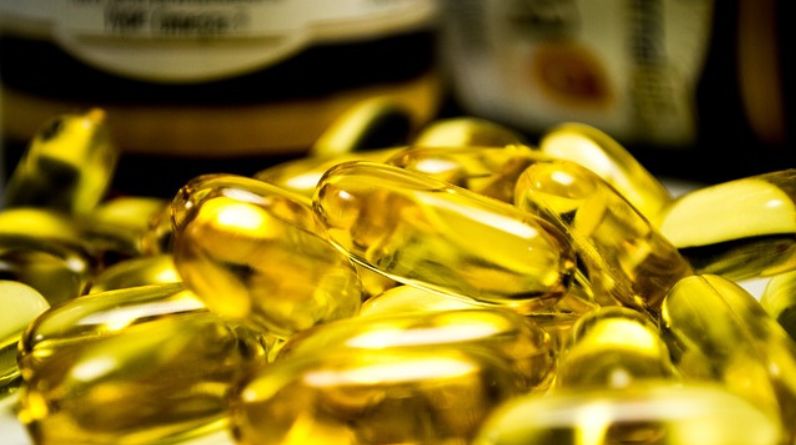
The liver, a vital organ in the human body, conducts a wide range of functions, including detoxification and metabolism. Given its critical role, preserving liver health is critical for overall health. Liver health pills have recently gained popularity as people seek proactive strategies to help this crucial organ. This article goes into the world of liver health supplements, examining the greatest options available as well as those created specifically for problems such as fatty liver.
The Liver’s Vital Functions:
Positioned in the upper right side of the abdomen, the liver is a multitasking organ crucial for maintaining overall health.
1. Detoxification Hub
The liver is the primary detoxification centre in the body, breaking down and neutralising toxic chemicals. It converts drugs, alcohol, and poisons into forms that can be safely removed from the body. This function is critical for preventing the buildup of potentially hazardous chemicals.
2. Nutrient Metabolism
Another important function of the liver is nutrition metabolism. When we eat, the liver assists in the processing and distribution of critical nutrients such as carbs, proteins, and lipids to other sections of the body. It maintains a continuous and balanced source of energy by regulating blood sugar levels.
3. Protein Production
The liver is a protein-producing powerhouse. It produces proteins that are required for blood coagulation, immune system function, and fluid homeostasis. Albumin, a key protein generated by the liver, helps to keep blood volume and pressure stable.
4. Storage of Essential Substances
The liver serves as a repository for vital chemicals. It stores glycogen, a type of glucose, to be released when the body requires extra energy. Furthermore, the liver stores vitamins and minerals and releases them into the bloodstream when they are required for biological activities.
5. Bile Production
Through bile production, the liver plays an important role in digesting. Bile is a substance produced by liver cells and retained in the gallbladder that aids in fat digestion and absorption. It emulsifies lipids, breaking them down into tiny particles that the intestines may easily absorb.
6. Immune System Support
The liver and the immune system are inextricably linked. It aids in the removal of pathogens from the bloodstream and the production of immunological components that aid in the fight against infections. A healthy liver promotes a strong immune response.
Common Causes of Liver Stress:
Despite its remarkable regenerative abilities, the liver is susceptible to stress, and various factors can compromise its function.
1. Poor Dietary Habits
A diet high in processed foods, saturated fats, and sweets can place a strain on the liver. Excessive consumption of these drugs can result in fatty liver disease, inflammation, and oxidative stress, all of which have an impact on overall liver health..
2. Excessive Alcohol Consumption
Alcohol is a primary cause of liver stress. Alcoholic liver disease, characterised by inflammation, fatty deposits, and, in severe cases, cirrhosis, can result from chronic alcohol drinking. Alcohol metabolism takes precedence over other activities in the liver, resulting in damage.
3. Environmental Toxins
Toxins in the environment, such as pollution, pesticides, and some chemicals, can put a burden on the liver. Continuous exposure may exhaust its detoxifying capabilities, perhaps causing long-term harm.
4. Medication Overuse
Some drugs, especially when taken in excess or without sufficient medical supervision, can cause liver stress. Certain pain relievers, antibiotics, and even herbal supplements can be hepatotoxic if not used properly.
5. Viral Infections
Viral infections, such as hepatitis, can directly attack and harm liver cells. Chronic viral hepatitis can cause chronic inflammation and, over time, impair liver function.
6. Sedentary Lifestyle
Obesity, insulin resistance, and fatty liver disease are all exacerbated by a lack of physical activity. Regular exercise benefits liver health by encouraging weight loss and metabolic balance.
7. Dehydration
Inadequate water impairs the liver’s capacity to filter out poisons properly. Water is essential for nutrient transport, waste removal, and general liver function.
8. Stress
Chronic stress can harm the liver by causing inflammation and disrupting hormonal homeostasis. Stress management is essential for preserving both mental and hepatic health.
9. Genetic Factors
Certain liver disorders can be predisposed to by genetic factors. Some people may be genetically predisposed to liver-related disorders such as hemochromatosis or Wilson’s disease.
10. Aging
The liver’s regeneration capacity may deteriorate as the body matures. This renders older people more vulnerable to liver problems, emphasising the significance of preventive health measures.
Benefits of Liver Health Supplements
The consumption of liver health supplements is associated with several potential benefits:
1. Detoxification Support
Liver health vitamins are essential for assisting the liver’s detoxification activities. The modern environment exposes people to a wide range of environmental toxins, pollutants, and chemicals. These supplements frequently contain elements such as vitamins, minerals, and botanical extracts that help the liver process and eliminate these toxic compounds from the body. Liver health supplements contribute to general well-being by boosting detoxification and assisting the body in dealing with the challenges of environmental exposures.
2. Antioxidant Protection
Antioxidants, which are molecules that neutralise damaging free radicals in the body, are abundant in liver health supplements. Free radicals can produce oxidative stress, causing liver cells and tissues to be damaged. Antioxidants found in these supplements, such as vitamins C and E, selenium, and plant chemicals such as flavonoids, aid in the fight against oxidative stress. This protection lowers the danger of inflammation and cellular damage, creating a healthier liver environment and possibly lowering the incidence of liver disorders.
3. Liver Regeneration
Certain components in liver health supplements, such as milk thistle (silymarin), have been linked to aiding liver cell regeneration. Hepatocytes, or liver cells, have an extraordinary ability to repair and renew, and supplements containing specific bioactive substances may improve this natural process. This regeneration is especially advantageous in the context of liver damage or stress, assisting in the long-term restoration of healthy liver function. Regular use of these nutrients may help the liver’s long-term health and resiliency.
4. Metabolic Support
Liver health supplements can help to optimise metabolic processes such as fat and sugar metabolism. The liver regulates metabolism, including the breakdown of fats for energy and the regulation of blood sugar levels. key supplements contain ingredients such as B-vitamins, choline, and herbal extracts that promote key metabolic functions. These supplements may help with weight control, energy production, and general metabolic balance by encouraging a healthy metabolism, lowering the risk of metabolic disorders.
Considerations and Precautions
While liver health supplements offer potential benefits, it’s crucial to approach their use with awareness:
1. Individual Variability
Individuals’ reactions to supplements can differ. Before incorporating liver health supplements, it is best to consult with a healthcare practitioner, especially if you have any pre-existing health concerns.
2. Quality Matters
Not all supplements are the same. Choosing high-quality, established brands guarantees you get products with correct labelling and effective ingredients.
3. Balanced Lifestyle
Supplements should be used to supplement, not replace, a healthy lifestyle. A healthy diet, frequent exercise, and moderate alcohol consumption are essential for liver health.
Best Liver Supplements
The potent ingredients listed below provide antioxidant, anti-inflammatory, and detoxifying support to the liver, aiming to improve its functions and boost your general health.
1. Milk Thistle: The Time-Tested Remedy
Milk thistle, derived from the seeds of the Silybum marianum plant, is a standout ingredient in liver health supplements. It contains silymarin, known for its antioxidant and anti-inflammatory properties, making it a potent ally for liver health.
2. N-Acetyl Cysteine (NAC): Boosting Glutathione Levels
NAC, a precursor to glutathione, a powerful antioxidant, supports the liver’s detoxification processes. By enhancing the body’s ability to neutralize toxins, NAC is a valuable addition to liver health formulations.
3. Turmeric: Nature’s Anti-Inflammatory
Curcumin, the active compound in turmeric, has anti-inflammatory and antioxidant properties. Studies suggest that curcumin may help reduce inflammation in the liver, contributing to overall liver health.
4. Vitamin E: Antioxidant Defense
Vitamin E, a potent antioxidant, plays a role in combating oxidative stress in the liver. By supporting the body’s natural defense mechanisms, vitamin E contributes to a healthier liver environment.
Fatty Liver Supplements
The following ingredients treat fatty liver issues by lowering fat content and inflammation and establishing a healthy liver environment.
1. Omega-3 Fatty Acids: The Healthy Fats
Omega-3 fatty acids, which can be found in fish oil and flaxseed, have showed promise in the treatment of fatty liver disease. They aid in the decrease of liver fat and inflammation.
2. Vitamin D: The Sunshine Vitamin
Vitamin D deficiency is linked to NAFLD. Supplementation may help improve liver function and reduce inflammation.
3. Choline: A Nutrient Essential for Liver Health
Choline is crucial for fat metabolism in the liver. Supplementing with choline may aid in managing fatty liver conditions.
Frequently Asked Questions (FAQs)
1. Can liver health supplements cure liver diseases?
Supplements for liver health are not a cure for liver disease. They can help with liver function and overall health, but they are not a replacement for medical treatment. For effective diagnosis and treatment of liver problems, it is critical to speak with a healthcare professional. Liver problems frequently necessitate focused medication interventions, dietary adjustments, or, in extreme circumstances, more advanced medical operations.
2. Are liver health supplements safe?
When used as indicated, liver health supplements are generally safe. Individual responses, however, may differ. To guarantee safety, choose reputed brands, adhere to suggested dosages, and notify your healthcare provider of any existing medical problems or drugs. Regular check-ups and consultation with a healthcare practitioner can aid in the detection of any potential bad effects.
3. Can liver health supplements interact with medications?
Yes, vitamins for liver health can interfere with drugs. Certain components may interfere with the metabolism of certain medications. Before combining liver health supplements with pharmaceuticals, contact with a healthcare expert to avoid any interactions and guarantee safety. This is especially crucial for people who are on long-term drugs or have pre-existing medical issues.
4. How long does it take to see results from liver health supplements?
The amount of time it takes to notice results with liver health supplements varies depending on factors such as individual health, the severity of liver disorders, and the specific supplement utilised. To establish the projected period for results, it is best to be patient, follow specified dosages consistently, and consult with a healthcare practitioner. Results can take weeks to months to appear, and continuous monitoring is required.
5. Are there dietary changes recommended along with liver health supplements?
Yes, dietary adjustments are frequently recommended in addition to liver health supplements. A well-balanced diet rich in nutritious foods, low in processed carbohydrates and fats, and appropriate hydration promotes general liver health. Combining a balanced diet with supplements can boost the regimen’s effectiveness. Lifestyle changes are critical in optimising liver function.
6. Can I take liver health supplements if I have no liver issues?
Individuals who do not already have liver problems can use liver health supplements as a preventive step. These supplements frequently contain substances that are advantageous to general liver function and can help to maintain a healthy liver. However, it is critical to select supplements that are acceptable for general well-being rather than overtreating in the absence of specific health concerns.
7. Are there age restrictions for liver health supplements?
Adults are generally safe to take liver health vitamins. Specific formulations, however, may not be suitable for youngsters. It is critical to follow the supplement manufacturer’s age guidelines and, if in doubt, check with a healthcare practitioner. Individuals’ nutritional demands and tolerances might change as they progress through life.
8. Can liver health supplements replace a healthy lifestyle?
Liver health supplements are a complement to, not a replacement for, a healthy lifestyle. A balanced diet, regular exercise, limited alcohol consumption, and avoidance of harmful substances are fundamental for liver health. Supplements are most effective when combined with a holistic approach to well-being. Relying solely on supplements without addressing lifestyle factors may not provide comprehensive benefits.
9. Are there side effects associated with liver health supplements?
While many liver health supplements are generally tolerated, adverse effects can occur, particularly if used in large quantities. Side effects could include stomach problems or allergic responses to specific substances. It is critical to follow the suggested dosages and seek medical assistance if you experience any side effects. Monitoring for adverse effects is critical for ensuring the safety and efficacy of supplements.
10. Can pregnant or breastfeeding women take liver health supplements?
Before utilising liver health supplements, pregnant or breastfeeding women should take caution and check with their healthcare professional. Certain substances may be unsafe to consume during pregnancy or lactation. Professional guidance ensures the mother’s and baby’s safety. During these vital times, it is critical to prioritise both mother and baby health.






